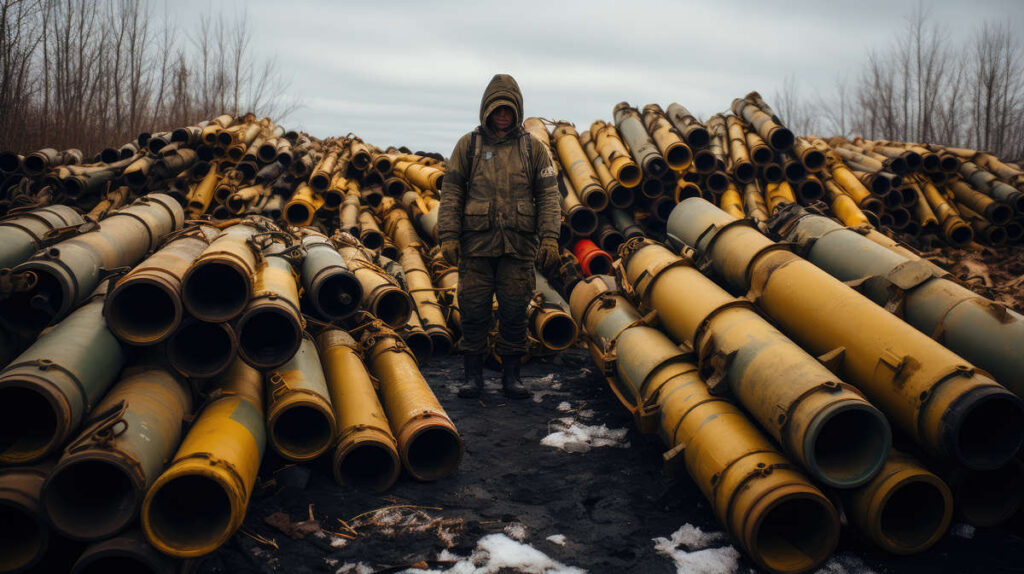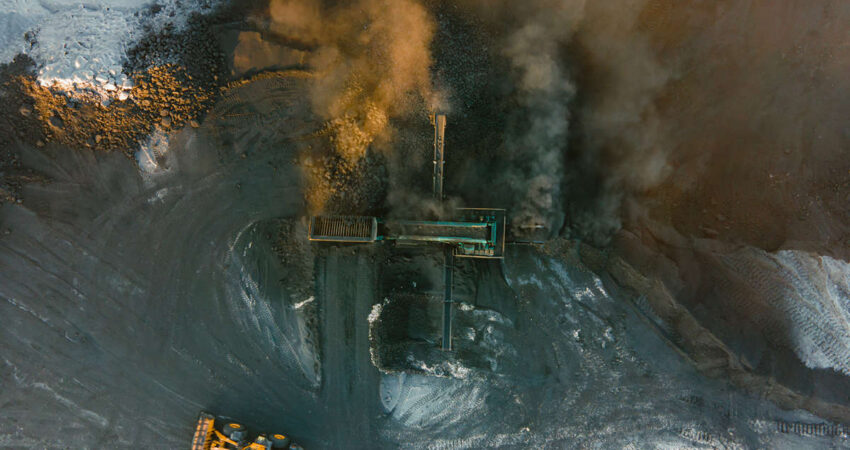Adobe Stock: #489877768
After the damage to the Nord Stream pipelines and a significant reduction in supplies of gas from Russia, including a complete cessation of supplies via the Yamal–Europe pipeline, the transit of Russian gas through Ukraine’s territory has remained one of the last routes for supplying the EU with gas, although it has decreased to a third of its pre-war level. While western European countries such as Germany were able to quickly find new sources of LNG, albeit at significant financial loss, many countries remain strongly dependent specifically on Ukrainian transit gas. These include the EU member countries of Slovakia, Austria, Italy, Hungary, Slovenia and Slovakia, as well as Moldova. Around 42 million cubic metres a day, or 1.26 billion cubic metres (bcm) a month, continue to transit through Ukraine from Russia.
Austria is the main recipient of gas from Ukrainian transit, providing it with 50-60% of the gas it uses. The second largest purchaser is Italy, but the volumes are proportionately not so significant for the country, making up only a few per cent of its imports. They are followed by Slovakia and Hungary, although Budapest was able to diversify and reroute the majority of supplies via TurkStream and the Balkans. Slovenia and Croatia receive trivial volumes of Russian gas through Ukraine, and Slovenia’s imports have fallen to almost zero after the end of its Geoplin contract with Gazprom on 1 January 2023.
Ukraine’s threats?
In these circumstances, when European countries are financing not only Ukraine’s defence but its very statehood, Kiev’s intention to stop the transit of Russian gas permanently has provoked a real storm in the media. The statement by Oleksiy Chernyshov, head of Naftogaz, that the company was not planning to extend the contract for the transit of Russian gas after it expires in 2024 was the first direct declaration that the transit agreement with Gazprom would not be extended.
As a reminder, Ukraine’s Naftogaz and Gazprom signed a five-year agreement on the transit of gas on a ship-or-pay basis in December 2019, meaning that Gazprom is obliged to pay for transit whether it makes use of this or not. The term of the agreement expires at the end of 2024.
In the summer of this year there was already talk about the ending of transit. In August, Ukraine’s energy minister German Galushchenko ruled out the prospect of Kiev taking part in any talks with Russia about future mechanisms of gas transit. At the same time, Russian deputy foreign minister Mikhail Galuzin then stated that the decision not to extend the agreement on transit of gas would “strike a blow” to the EU, and Ukraine would “shoot itself in the foot, losing dividends from transit.”
One thing is unclear, and that is who this political initiative – or even blackmail – by Ukraine is directed at. It is against its military opponent or its European sponsors? This is the question that was immediately asked in Austria. Vienna has of course stated more than once that it intends to end its dependence on Russian gas over time. For the time being, it has managed to reduce the share from 80% to 60% of its imports. But what we’re talking about here is that this is being done without Austria’s knowledge, and evidently without its agreement. The Austrian company OMV has a long-term contract to receive up to 6 bcm of Russian gas each year until 2040 and Ukraine’s declarations have therefore provoked a heated reaction in the Austrian media.
Austrian officials of course insist that the country’s continuing dependence on Russian gas is only temporary in nature and will weaken by 2027, but after Kiev’s statements Austria started immediately to think about possible gas supply plans. Thus, Carola Millgramm, head of the gas department at Austria’s energy regulator E-Control, reflected that gas could be supplied from Germany and Italy, which are also transit countries. This would undoubtedly increase its cost.
Olha Stefanishyna, deputy prime minister of Ukraine, hastened to give assurances that Ukraine will continue to “let Russian gas through to Austria,” even though Ukraine does not intend to extend its transit contract with Russia. Commenting on these illogical claims, commentators note that the deputy prime minister’s reassuring statements were probably made in the hope of EU member countries approving talks on Ukraine joining the bloc. In any event, the refusal to extend the transit agreement will signify a necessity for a new complex legal and political structure between the EU, Russia and Ukraine.
The view on this in Germany and other EU countries
Despite the fact that physically Germany does not receive Russian gas directly at present, the end of its transit through Ukraine will affect it too, since it will have to assist its neighbours with gas supplies. With a restricted supply, the price environment will also probably become very difficult in general.
In summer 2023, German vice chancellor and economy minister Robert Habeck acknowledged that unfortunately Berlin had not yet developed a clear programme that would allow the future development of events and a sequence of actions to be predicted. He mentioned that Germany may be forced to wind down or even switch off industrial capacity.
Expert communities in other countries are trying to soberly assess the situation and look for a way out. Thus in the view of Tamás Pletser, oil and gas analyst at Erste Bank, Ukrainian officials have now declared the risks of transit for the third time in a few months, and the market is therefore beginning to prepare for the absence of supplies through Ukraine. In an interview with Index, he emphasized that Kiev’s decision will primarily harm Hungary, Slovakia, the Czech Republic and Austria but Hungary for example will probably be able to receive its contracted volumes through TurkStream.
Other risks for transit
Experts are also talking openly about the fact that even before the end of the contract, the main risk for Europe’s energy security over the winter of 2023-24 is a full or partial cessation of supplies of Russian gas due to decisions by Kiev or even new acts of sabotage by Ukrainian special forces. However, in fairness it should be said that the investigation of the explosion in the Nord Stream pipelines is ongoing and the saboteurs’ connection to Kiev is just one theory.
Be that as it may, in November Kiev warned that if Russia continues attacks on Ukraine’s energy infrastructure, it may target Russia’s oil and gas infrastructure in response. New threats from the Ukrainian side once more confirm the risks of this transit, which has been remarkably stable in recent months. One should not forget that gas is passing through territory where military actions are being carried out. Kiev’s actions are a reminder that in these circumstances, it could unilaterally halt supplies in order to put pressure on the European Union on any issue. These are the risks associated with transit countries. Weren’t these the reasons that Nord Stream was built?

Adobe Stock: #656334674
The last fall in transit flows occurred in May 2022 when Ukraine’s transmission system operator declared force majeure and stopped transit flows through Sohranivka, one of the two entry points of Russian gas to Ukraine, citing gas theft and the lack of operational control over the physical infrastructure in the territory occupied by Russia. Since then, Gazprom has been submitting applications for transit through this point on a regular basis, and Ukraine has time after time declined them.
However, since the second half of 2022, transit flows through the only remaining entry point at Sudzha have been extremely stable and near to their present level, and it is the nominations of the rest of Gazprom’s European clients that have influenced fluctuations rather than any breaking of physical flows in the context of military action.
What are the alternatives?
The sudden cessation of the remaining flows of gas through Ukraine to Europe will have destructive consequences and will lead to an increase in prices for gas in the affected countries and beyond. However, this will not leave the majority of recipient countries without viable alternative routes. Replacing Ukrainian transit gas with additional volumes of LNG or Norwegian or Algerian gas will simply increase the expenses of European countries. In this way, European consumers will be forced once again to pay for the political decisions of partners outside the EU.
Conclusion
Unfortunately, the energy market does not entirely obey the laws of economic soundness. Political considerations and agreements take first place when political concessions and blackmail affect the fate of commercial contracts.
One should not underestimate Ukraine’s threats. The history of the gas wars of the 2000s confirms that Kiev is fully capable of blocking gas transport flows to achieve its own political and economic goals. Back then this tactic was used to conceal illegal gas offtake and a refusal to pay out on debts. But now, it is possible that it may be an instrument for improving its position on entry to the EU.

